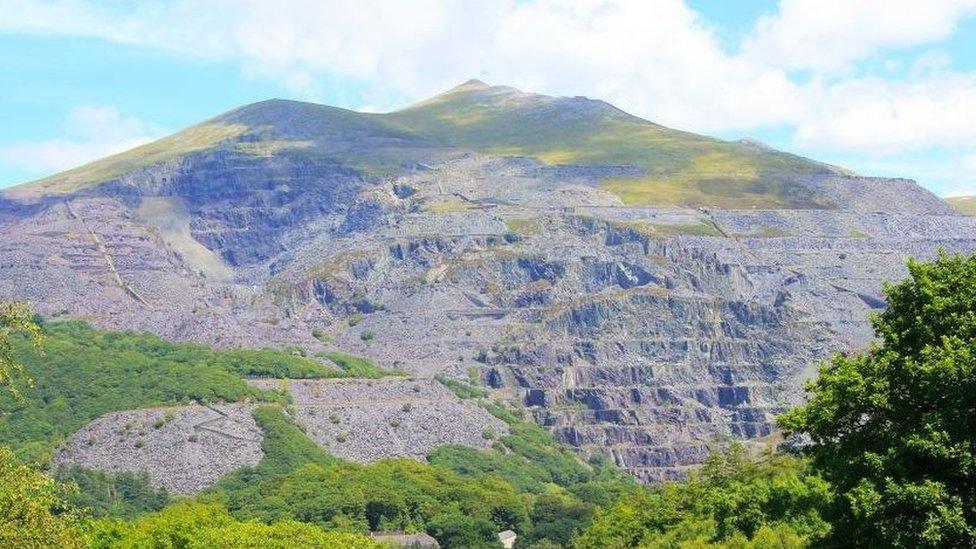Wales' Unesco World Heritage benefits 'should be shared'
- Published
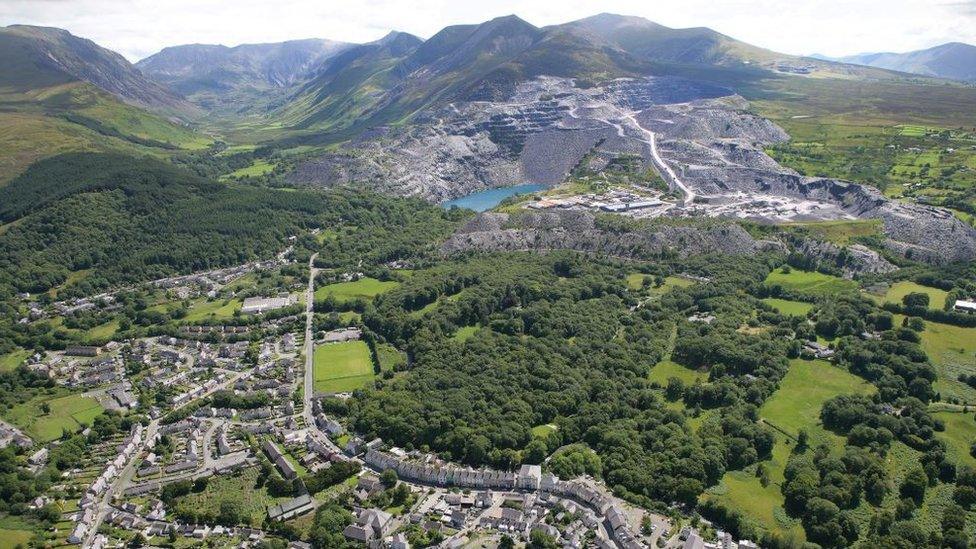
The slate landscape of north west Wales became the UK's 33rd World Heritage Site last year
The success of a slate region given Unesco heritage status must be felt in all communities, a councillor has warned.
The slate landscape of north-west Wales became the UK's 33rd World Heritage Site last year.
But there are fears some communities will get too much tourism, while others could miss out.
Gwynedd council said it was developing a sustainable tourism framework with Snowdonia National Park.
With overseas travel being severely disrupted during the Covid pandemic, Snowdonia National Park said it had witnessed a significant increase in tourists.
While many see the benefits of a boost in trade, there have been pressures on infrastructure such as parking issues and a lack of facilities to make such tourism work in smaller communities.
"The frustrations are that people are refusing to pay for parking", said Llanberis councillor Kevin Morris Jones.
"They park in our streets - imagine going to the shops for five minutes and then you come back home and there's a car there for the next eight hours."
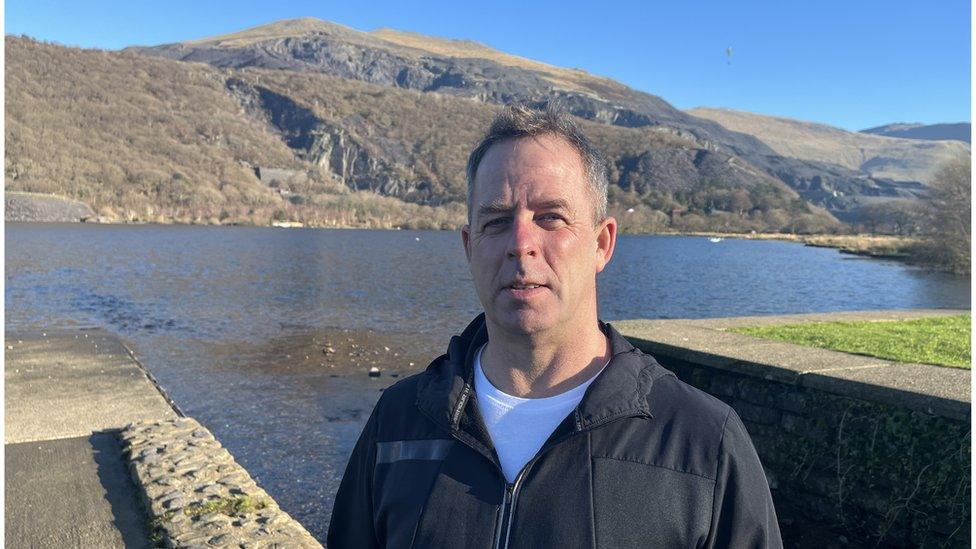
Llanberis councillor Kevin Morris Jones says more villages should benefit from the success of the heritage site
With the area having welcomed more visitors since the beginning of the pandemic, there are fears that a combination of factors, including the newly-designated Unesco site, could lead to an even greater influx.
There are calls for the benefits brought by the Unesco status to be shared beyond the honey pot of Llanberis, including Dyffryn Nantlle, Dyffryn Ogwen Ffestiniog and Abergynolwyn.
"They need to remember that other villages are in the project as well and we need to share these people about," said Mr Jones.
"Other villages could benefit a lot from this. If people only come here, the village and the community is in for some hard years."
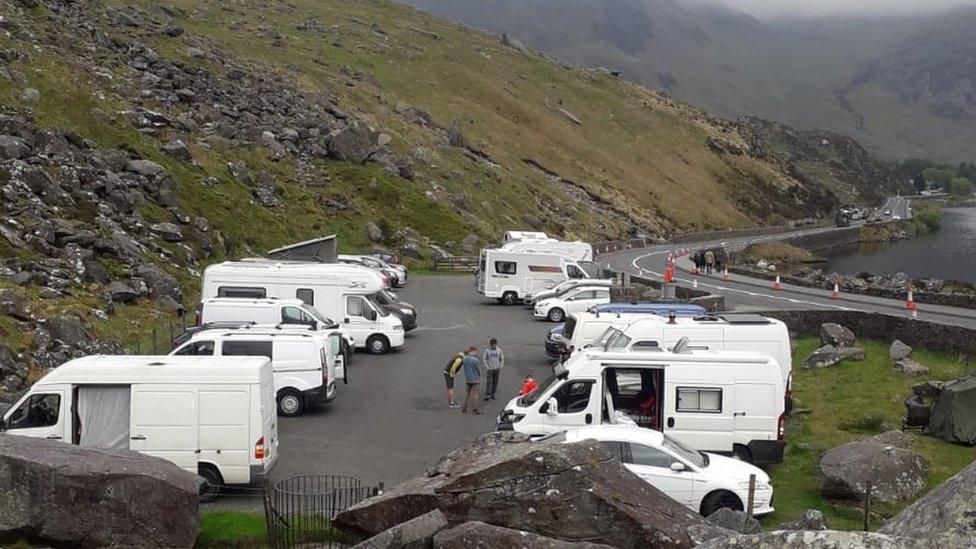
Snowdonia has attracted more tourists since the pandemic
During the pandemic there have been many issues due to a lack of infrastructure to deal with more tourists, with locals complaining of severe traffic jams and dangerous parking near Snowdon.
Gwynedd Council and the Snowdonia National Park Authority are holding public consultations and developing a framework to create a sustainable tourism model that will be announced later this year.
Helen Pye, head of engagement for Snowdonia National Park, said: "When you get people around the table - the combination of the public sector, private and community voices - that's when we get innovative ideas."
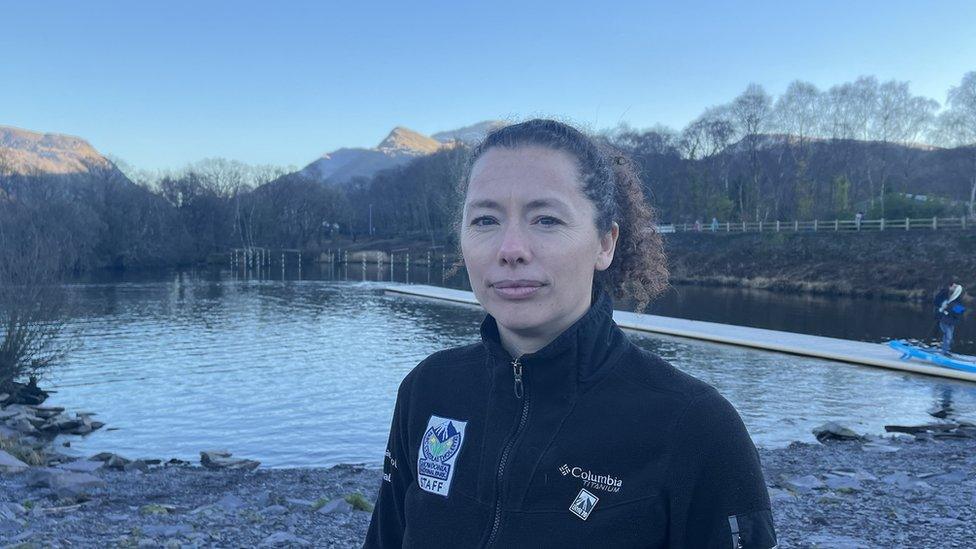
Helen Pye, from Snowdonia National Park, says getting people around the table generates ideas on how tourism can be sustainable
Ms Pye said Unesco heritage status could protect communities as well as offer opportunities.
"Like our national park status, the area gets a lot more support because of the status in managing visitors to the area.
"We see the Unesco status as a way to tackle those challenges and to bring forward those important elements of culture and supporting local communities."
The slate landscape of north-west Wales is said to have "roofed the 19th Century world"
Ms Pye stressed she had confidence all areas within the Unesco area would benefit over the coming years.
Councillor Gareth Thomas, responsible for economic development at Gwynedd council, said he hoped Unesco status would increase tourism during off-peak times and alleviate pressure.
"The benefit of Unesco is that we can move people around Gwynedd if you like so that Llanberis and places like that won't see such high numbers," he said.
"So we're trying to promote these other areas too."
Speaking about the council's plans for a sustainable tourism model, Mr Thomas said it would be based on the principles of respect for "culture and language".
"What it means is that we make sure that people respect and understand our area - we must sort issues like rubbish and parking too with the national park, so there's much work happening."

BARGE BASHING AND BICKERING: Explore Welsh canals with Maureen and Gareth
DIG OUT YOUR CAGOULE AND TIE UP THOSE BOOTS: The Welsh Coast awaits, explore it with Derek

- Published28 July 2021
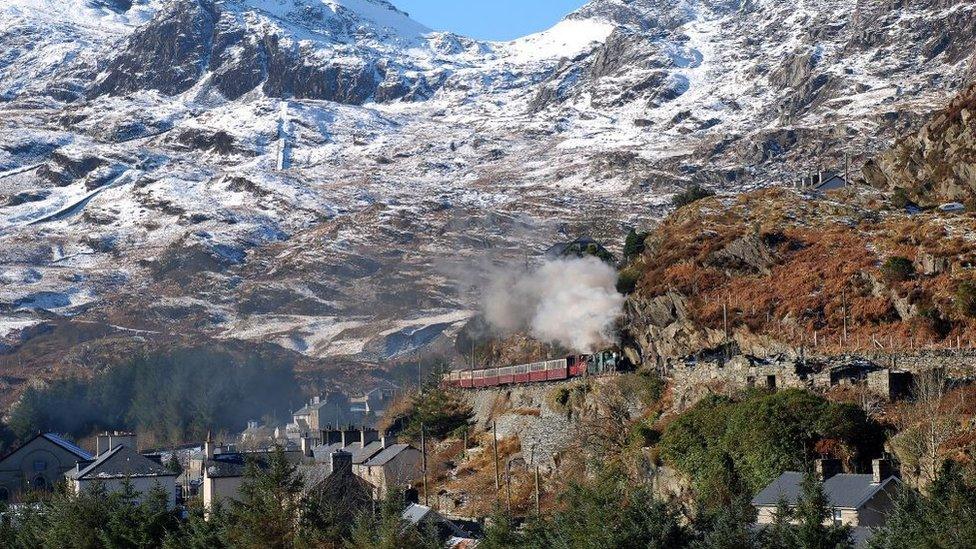
- Published23 October 2018
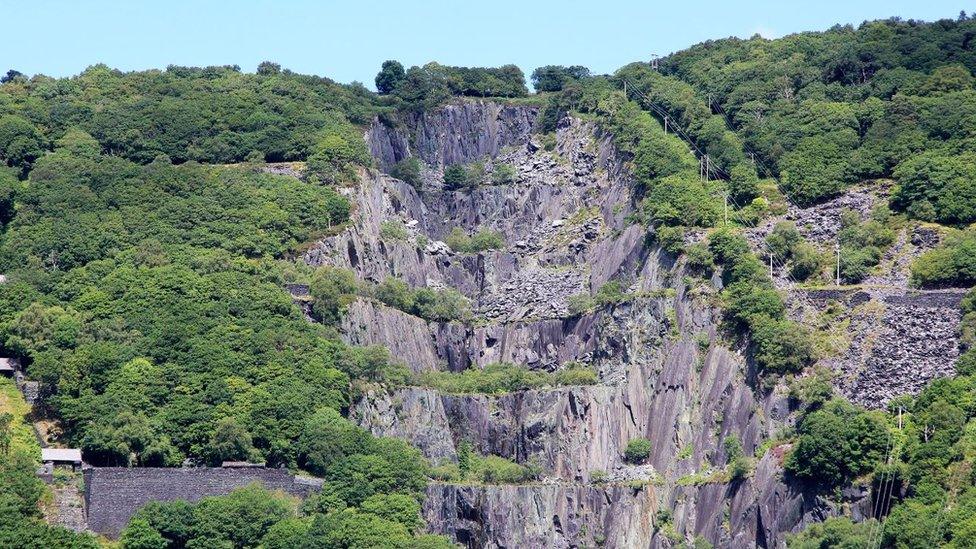
- Published18 August 2019
